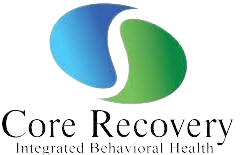Recognizing the Right Time to Prioritize Your Well-being
The journey towards Eating Disorder Recovery is crucial in a world that frequently promotes unrealistic body standards and unhealthy food relationships. Eating disorders, encompassing a range of complex mental health conditions, affect not only physical health but also emotional well-being. It’s imperative to address these disorders promptly and effectively, recognizing their toll on individuals’ lives.
This blog delves into eating disorder recovery, shedding light on the significance of finding lasting healing. We’ll navigate through the diverse and proven methods that pave the way to recovery, empowering individuals to regain control over their lives and foster healthier relationships with their bodies and food.
What Is Eating Disorder Recovery
Eating Disorder Recovery is a profound journey of rediscovery and healing. It’s a process where individuals gradually mend their relationship with food, their bodies, and themselves. It involves acknowledging the underlying emotional triggers, dismantling harmful behaviors, and learning healthier coping mechanisms. Recovery isn’t about perfection; it’s about progress and self-compassion. It’s finding solace in a supportive network through therapy, counseling, or peer groups. Ultimately, it’s about reclaiming a life where self-worth isn’t defined by appearances or numbers but by vitality, contentment, and the courage to embrace a balanced and fulfilling future.
The Multifaceted Nature Of Recovery
Eating disorder recovery is a complex journey that extends far beyond physical healing. It’s a multifaceted process encompassing emotional, psychological, and spiritual aspects. Recognizing the depth and breadth of this journey is crucial for individuals seeking to overcome their struggles and emerge stronger than before. In this segment, we delve into the multifaceted nature of eating disorder recovery, shedding light on the various dimensions that must be addressed for a holistic and lasting healing experience.
- Physical Healing: While the emotional and psychological aspects are central to eating disorder recovery, addressing the physical repercussions is equally essential. Nutrition plays a pivotal role, as individuals must restore a healthy relationship with food and their bodies. This involves working closely with healthcare professionals to create a balanced eating plan that supports overall well-being. Nutritional rehabilitation not only nourishes the body but also aids in stabilizing moods and restoring energy levels.
- Emotional and Psychological Growth: Eating disorders often involve complex emotional struggles. Overcoming these challenges requires delving into the underlying factors contributing to disordered eating habits. Therapeutic interventions, such as Cognitive-Behavioral Therapy (CBT) and Dialectical Behavior Therapy (DBT), provide a safe space to explore these emotions, develop coping mechanisms, and rewire negative thought patterns. Through introspection and guidance, individuals can build emotional resilience and a healthier self-image.
- Self-Discovery and Identity: The recovery journey offers a unique opportunity for self-discovery. As individuals distance themselves from the grips of their disorder, they can begin to rediscover their authentic selves. This process involves redefining personal values, interests, and passions, ultimately leading to a more fulfilling life beyond the disorder’s confines.
- Social Connections and Support: Isolation often accompanies eating disorders, making restoring social connections a vital aspect of recovery. Engaging with support groups, therapy, and even educational workshops can help individuals rebuild relationships, gain new perspectives, and alleviate feelings of loneliness.
- Mind-Body Alignment: Finding harmony between the mind and body is essential in recovery. Practices like yoga, mindfulness, and meditation foster a sense of presence, enabling individuals to reconnect with their bodies positively. Cultivating self-compassion and practicing self-care further reinforce this mind-body alignment.
- Long-Term Wellness: Eating disorder recovery isn’t a quick fix; it’s a lifelong commitment to well-being. Transitioning from structured recovery programs to independent maintenance requires ongoing effort. Developing healthy habits, recognizing triggers, and having a support system are crucial for maintaining progress and preventing relapse.
The multifaceted nature of eating disorder recovery illustrates that healing goes beyond simply addressing physical symptoms. It involves nurturing mental, emotional, and even spiritual aspects, resulting in a comprehensive transformation that empowers individuals to embrace life with renewed vigor. Individuals can embark on profound healing and self-discovery by recognizing and embracing each dimension.
Effective Eating Disorder Recovery Methods
Eating disorder recovery is a courageous journey that demands dedication, support, and a toolkit of effective methods. While every individual’s experience is unique, specific strategies have proven remarkably successful in guiding people toward lasting healing. This guide will explore some of the most effective eating disorder recovery methods, offering insights and inspiration for those embarking on this transformative path.
- Nutritional Rehabilitation: Balanced nutrition is essential for physical and emotional well-being. Collaborating with a registered dietitian to create a personalized meal plan fosters a healthier relationship with food, addresses nutrient deficiencies, and supports overall recovery.
- Individual and Group Counseling: Individual therapy offers a safe space to explore underlying emotional triggers, while group counseling provides an opportunity to learn from others, practice social skills, and build a sense of belonging.
- Self-Care and Mindfulness Practices: Cultivating self-care routines and mindfulness techniques nurtures a positive relationship with oneself. Practicing self-compassion, meditation, and journaling can aid in managing stress and promoting emotional resilience.
- Physical Activity with Balance: Incorporating moderate and enjoyable physical activity contributes to physical and mental well-being. Focusing on activities that bring joy rather than excessive exercise helps reshape attitudes toward movement.
- Family Involvement and Education: Involving family members in recovery fosters understanding and empathy. Family therapy sessions provide a platform for communication, education, and support, creating a conducive environment for healing.
- Medication and Medical Supervision: In some cases, medication can complement therapy and assist in managing co-occurring conditions like anxiety or depression. Medical professionals closely monitor medication regimens for safety and efficacy.
- Overcoming Challenges and Relapses: Recovery is not without setbacks. Developing coping strategies for managing challenges and recognizing early signs of relapse equips individuals with the tools to navigate obstacles.
- Building a Future of Wellness: Effective eating disorder recovery methods ultimately pave the way for a brighter future. As individuals progress, they can focus on setting and achieving new goals, nurturing meaningful relationships, and rediscovering passions.
The journey to recovery is as diverse as the individuals embarking upon it. By integrating a combination of these effective methods tailored to individual needs, those on the path of healing can unlock their potential and embrace a life defined by strength, resilience, and self-discovery. Remember, seeking professional guidance is essential for creating a comprehensive recovery plan that addresses every facet of this complex journey.
The Journey To Sustainable Recovery
Recovery is not a destination; it’s an ongoing journey marked by growth, challenges, and triumphs. As individuals navigate the intricate path of healing from eating disorders, one crucial truth becomes evident: recovery is a continuous process. This understanding forms the cornerstone of sustainable well-being, allowing for the development of resilience and celebrating each small victory along the way.
Embracing the Continuity of Recovery
The notion of recovery as an ongoing process is rooted in the understanding that healing extends beyond the cessation of disordered behaviors. While breaking free from destructive patterns is significant, proper recovery delves deeper into the emotional, psychological, and spiritual aspects that contribute to the disorder’s existence. By acknowledging that recovery isn’t linear and that setbacks might occur, individuals can better equip themselves to navigate the journey’s twists and turns.
Recognizing Small Victories
Amid the challenges, it’s imperative to celebrate even the most minor victories. No matter how incremental, each step towards change is a testament to strength and progress. Whether challenging a negative thought, trying a fear food, or attending a therapy session, every effort counts. These moments of triumph serve as powerful reminders of resilience and motivate me to keep pushing forward.
Cultivating Self-Compassion
Throughout the recovery journey, individuals often grapple with self-judgment and perfectionism. Embracing self-compassion is paramount. Just as recovery isn’t linear, no one is flawless. Compassion towards oneself during moments of difficulty fosters a nurturing environment for growth. Rather than berating ourselves for setbacks, we can offer understanding and kindness, recognizing that healing involves ups and downs.
Building a Supportive Network
The journey to sustainable recovery doesn’t have to be traveled alone. Surrounding oneself with a supportive network of friends, family, therapists, and support groups provides an invaluable foundation. Sharing victories, expressing challenges, and seeking guidance from these connections can lessen the burden and remind individuals that they are not alone.
Setting Realistic Goals
Sustainable recovery involves setting realistic, achievable goals. While long-term aspirations are vital, breaking them down into smaller, manageable steps fosters a sense of accomplishment. Celebrating these mini-milestones reinforces progress and fuels the determination to continue striving for lasting well-being.
Fostering Resilience
The journey to sustainable recovery has setbacks. These moments, although difficult, contribute to the development of resilience. Bouncing back from challenges, learning from relapses, and adapting strategies are all indicators of strength. Acknowledging that setbacks are part of the process helps individuals approach them with a growth-oriented mindset.
The journey to sustainable recovery is a testament to the human spirit’s capacity for change and growth. By embracing the reality that recovery is an ongoing process, individuals can free themselves from the pressure of achieving instant perfection. Celebrating small victories along the way bolsters confidence, nourishing the belief that healing is attainable step by step. As you navigate this intricate journey, remember that every effort you make, no matter how small, brings you closer to a life defined by wellness, strength, and authenticity.
Navigating eating disorder recovery can be overwhelming, with no one-size-fits-all solution. Overcoming the challenges requires effective methods that address the multifaceted nature of the journey.
Are you feeling lost, searching for the right strategies to heal? Do setbacks make you doubt your progress? Without proven techniques, the path to recovery can feel like an uphill battle.
At Core Recovery, we’re here to guide you. Our evidence-based approaches, including therapy, support groups, and personalized nutrition plans, empower your healing journey. Celebrate victories, conquer setbacks, and experience sustainable recovery. Contact us at 1(602)810-1210 or visit our website at www.corerecoveryaz.com to start your transformation today. Your well-being is worth the investment.






 In CA By O360®
In CA By O360®